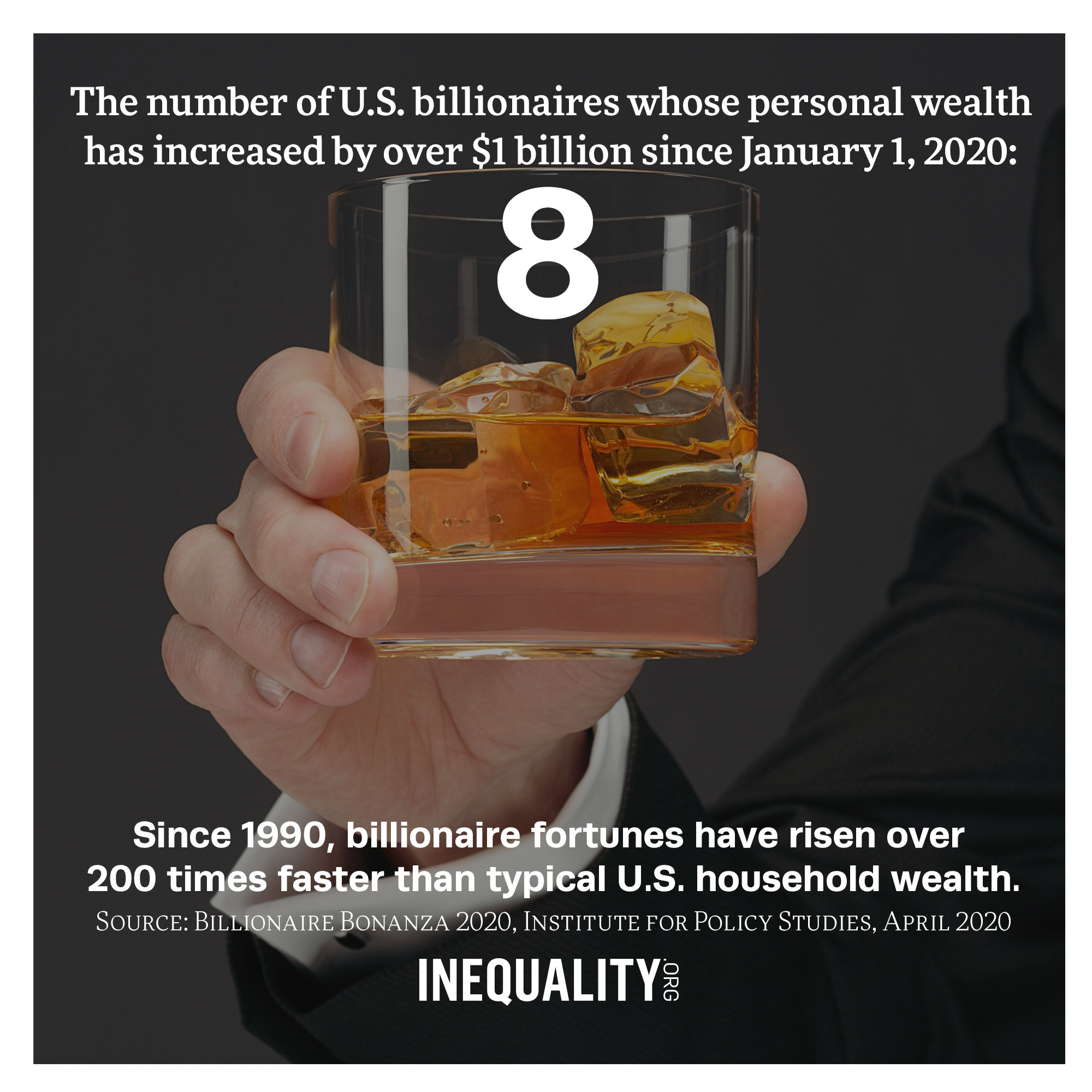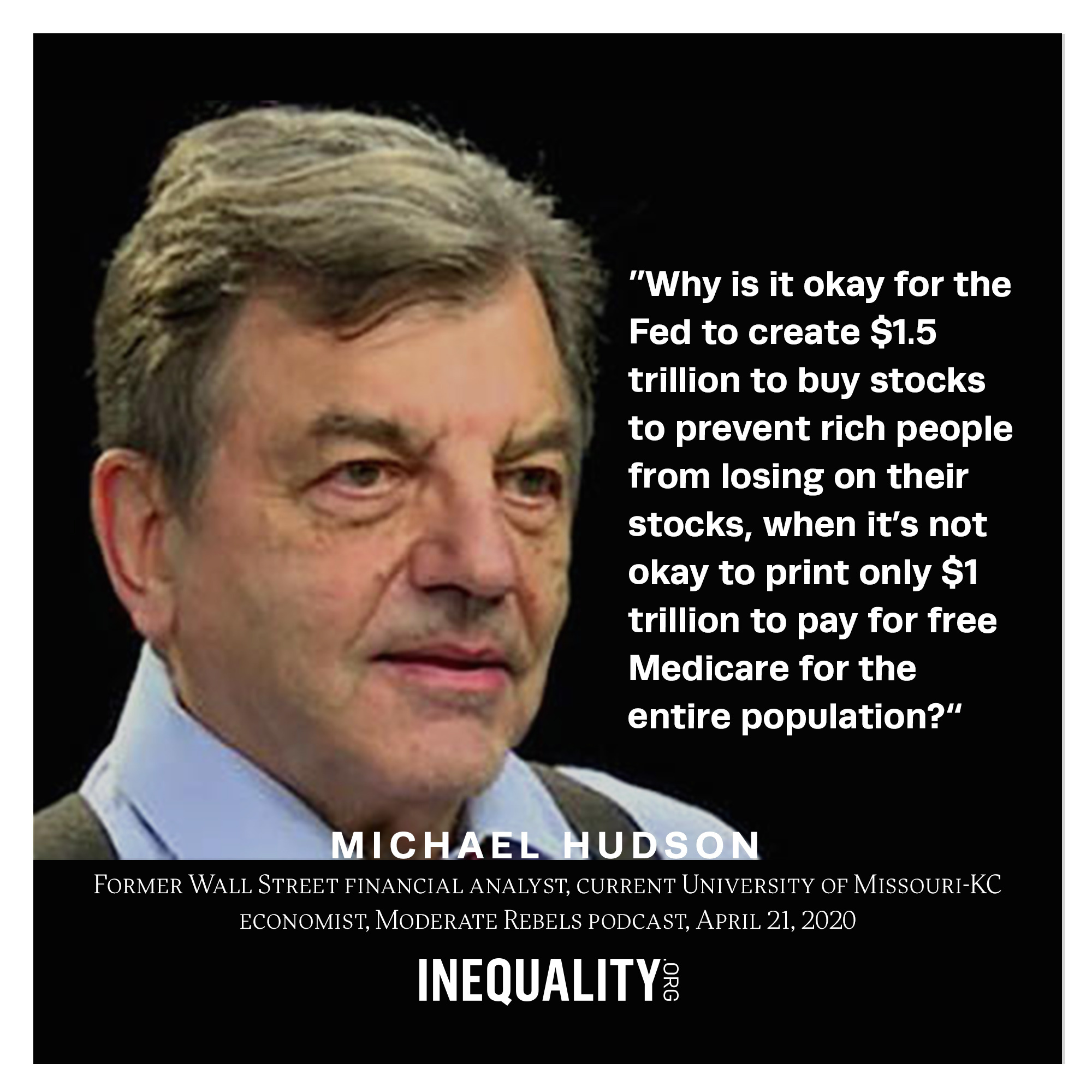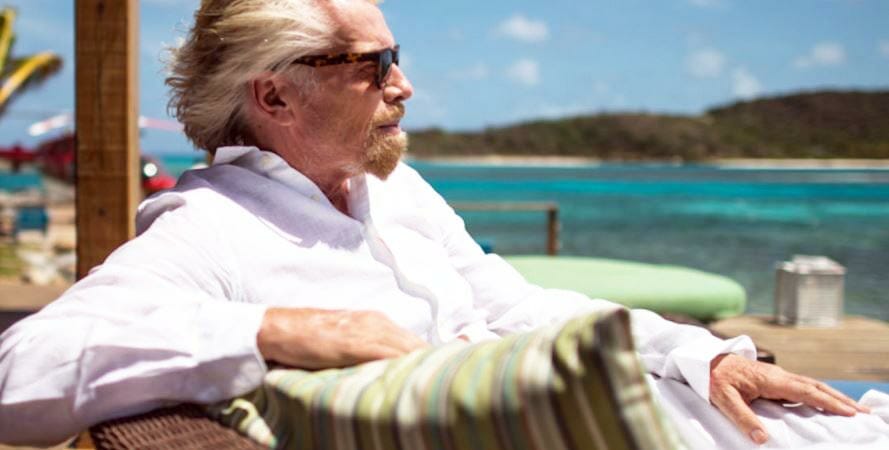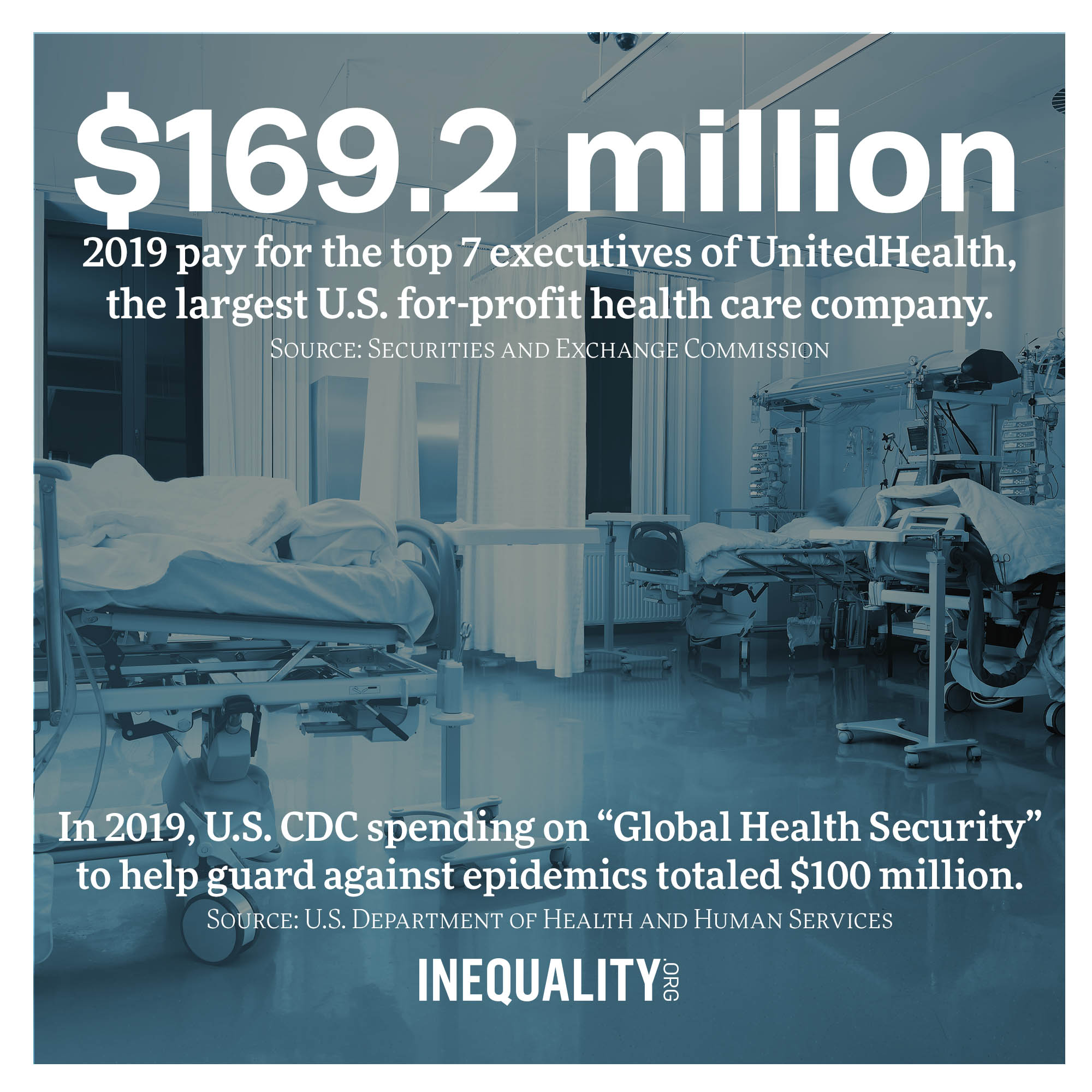| THIS WEEK |
Most of our world is continuing to suffer from both a horrific pandemic and a devastating economic crash. But the richest among us? In the United States, they’re watching their wealth surge. We are all most definitely not sitting in the same boat.
Over the course of just a few March and April weeks, 22 million U.S. workers lost their jobs. Over the same weeks, U.S. billionaires increased their cumulative wealth by $282 billion, nearly a 10 percent increase. These numbers come from our just-released latest edition of Billionaire Bonanza. The report’s focus: the pandemic parasites turning the pain of coronavirus into profit.
Decades of compounding inequality have left our rich perfectly primed to take advantage of this troubled moment. Now we need to prime ourselves for the struggle to forge a more equal future. In ths week’s issue, more on steps we can take to get that future going.
Chuck Collins, for the Institute for Policy Studies Inequality.org team |
|
| |
|
| INEQUALITY BY THE NUMBERS |
 |
|
|
|
| |
|
| FACES ON THE FRONTLINES |
 |
| Care for All Town Hall Makes Care Work Visible |
| The essential nature of caregiving becomes much more obvious in a pandemic. But the work caregivers do still typically takes place far outside the public eye and seldom gets the respect it so deserves. To help change that — and offer caregivers a deeper sense of community — Caring Across Generations held its first Care For All town hall on Sunday. Noted the National Domestic Worker Alliance’s Alicia Garza at the event: “The frontline of this crisis begins in our homes. Family caregivers and domestic workers," she went on, "make up the backbone of our care ecosystem.” Their work has been and always will be “vital to our collective health and wellbeing.” |
|
| |
|
| WORDS OF WISDOM |
 |
|
|
|
| |
|
PETULANT PLUTOCRAT
OF THE WEEK |
 |
| Tax Avoidance, Phooey! We Just Enjoy All the Sun |
| Billionaire Richard Branson has always bristled when critics call him a tax dodger for settling in the British Virgin Islands, a notorious tax haven that’s helped Branson avoid income tax in his native UK for the past 14 years. But the 69-year-old insists he only calls the Caribbean home because he and his wife simply share a “love of the beautiful British Virgin Islands and in particular Necker Island,” an isle that Branson owns and rents out for $65,000 a night. Branson is now pledging his beloved Necker as collateral for a £500-million UK government bailout he’s seeking for his troubled Virgin Atlantic airline. Branson’s people see the isle as worth about $100 million. Others doubt that valuation since Necker Island sits right on a climate-change bull’s-eye. A lightning strike burned Branson’s Necker mansion down in 2011, and a hurricane leveled the island in 2017. In the struggle against tax avoidance, says Guardian analyst Marina Hyde, the corona crisis seems to be “making the biggest culprits even more shameless.”
|
|
| |
|
| BOLD SOLUTIONS |
 |
| A Pandemic Profiteering Oversight Committee |
| How can eight billionaires see their personal wealth surge by more than $1 billion during a pandemic that has left tens of millions of Americans jobless? Congress needs to find out — by convening an oversight commission modeled after the Truman Committee during World War II. A Truman-like panel could both monitor the corona relief package and root out corruption and profiteering. As part of the CARES Act enacted last month, Congress did create several oversight bodies to monitor the $2 trillion in funds appropriated, including a five-member Congressional Oversight Commission and a Pandemic Response Accountability Committee. But oversight needs to go beyond just the administration of stimulus programs and look at inappropriate profiteering in the economy at large. Congress should also consider putting in place an excess profits tax along the lines of levies in effect during World War II and the Korean War. Check our Institute for Policy Studies Billionaire Bonanza report for more recommendations on fighting pandemic profiteering. |
|
| |
|
| GREED AT A GLANCE |
 |
|
|
|
| |
|
| TOO MUCH |
 |
| Shed No Tears for CEOs with Sinking Share Prices |
| Every spring about this time, the for-profit Tenet Healthcare hospital chain files its required annual proxy paperwork with the federal Securities and Exchange Commission. This spring’s filing came at a particularly awkward time for the health care giant: Tenet just happens to be furloughing thousands of health care workers amid the nation’s biggest health care crisis in over a century, not a good time for a proxy to be revealing that Tenet CEO Ronald Rittenmeyer took home $24.3 million last year, a 62 percent increase over his pay the year before. Still another outrage: Rittenmeyer likely has lots more windfalls in his future. Inequality.org co-editor Sam Pizzigati has more. |
|
|
|
| |
|
| MUST READS |
This week on Inequality.org
Chuck Collins, Omar Ocampo, and Sophia Paslaski, Billionaire Bonanza 2020: Wealth Windfalls, Tumbling Taxes, and Pandemic Profiteers. U.S. billionaires are building fortunes while average Americans are losing lives.
Karen Spring and Judy Ancel, Hondurans Protest as Elites Attempt to Use Pandemic to Enrich Themselves. With virtually no government assistance, laid-off Honduran factory workers have had no choice but to defy extreme lockdown measures and take to the streets.
Jeff Bryant, Betsy DeVos and the Charter School Movement Use a Pandemic to Advance Their Agendas. The country might be in lockdown, but the school privatization movement steams ahead.
Elsewhere on the Web
Chuck Collins, Let's stop pretending billionaires are in the same boat as us during this pandemic, Guardian. The wealthy are “economically distancing” and undermining our social solidarity.
Robert Reich, Covid-19 pandemic shines a light on a new kind of class divide and its inequalities, Guardian. Our new corona class breakdown: the remotes, the essentials, the unpaid, the forgotten.
Dylan Wiwad, Paul Piff, and Lara Aknin, Coronavirus crisis may help Americans remember that economic inequality is not fair or just, Los Angeles Times. Those who understand that people can experience economic need despite their best efforts, research shows, have less tolerance for inequality.
Liz Theoharis, Inequality and the Coronavirus, Or How to Destroy American Society From the Top Down, TomDispatch. The Poor People's Campaign co-chair explains how our current crisis is exposing how an economy oriented around the whims of the rich brings death and destruction in its wake.
Daniel Markovits, A Wealth Tax Is the Logical Way to Support Coronavirus Relief, New York Times. A wealth tax would fund the relief effort in a way that gives meaning to shared sacrifice.
Michael Higgins, Out of the tragedy of coronavirus may come hope of a more just society, Social Europe. The president of Ireland calls for a more egalitarian future.
Kanishk Tharoor, The Exclusivity Economy, New Republic. How concierge dining, health, and travel services insulate the wealthy and help hide soaring inequality.
Luiza Nassif-Pires, Laura De Lima Xavier, Thomas Masterson, Michalis Nikiforos, and Fernando Rios-Avila, Pandemic of Inequality, Levy Economics Institute. Without policies sensitive to inequalities, policies to fight the coronavirus outbreak will exacerbate biases and increase the severity of the crisis.
Isaac Stanley-Becker, The anti-quarantine protests seem spontaneous. But behind the scenes, a powerful network is helping, Washington Post. With the corona "liberate" protests, we have billionaires once again subsidizing “grassroots” expressions of outrage.
Alissa Quart and Yaryna Serkez, Who Has Enough Cash to Get Through the Coronavirus Crisis? New York Times. Despite the cheery insistence of the personal finance gurus, the economic growth of the last decade has not brought wealth or security to most Americans. |
|
| |
|
| A FINAL FIGURE |
 |
|
|
|
| |
|
|